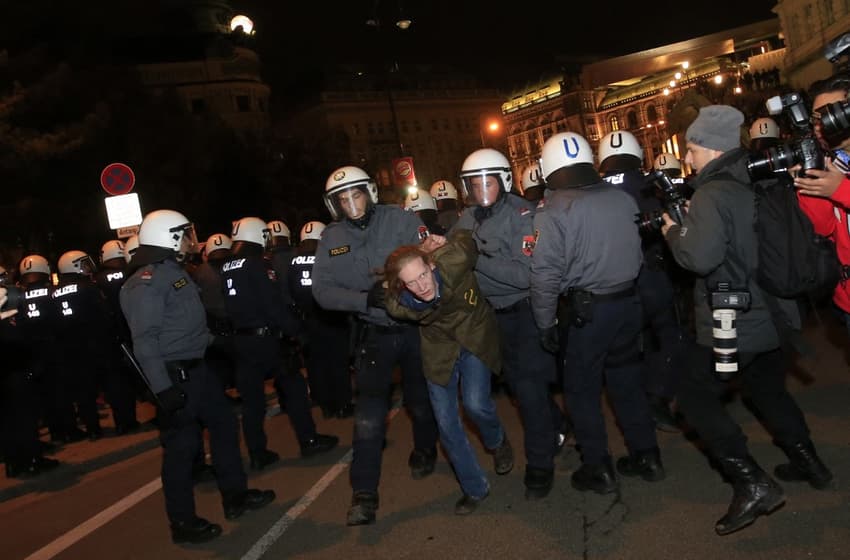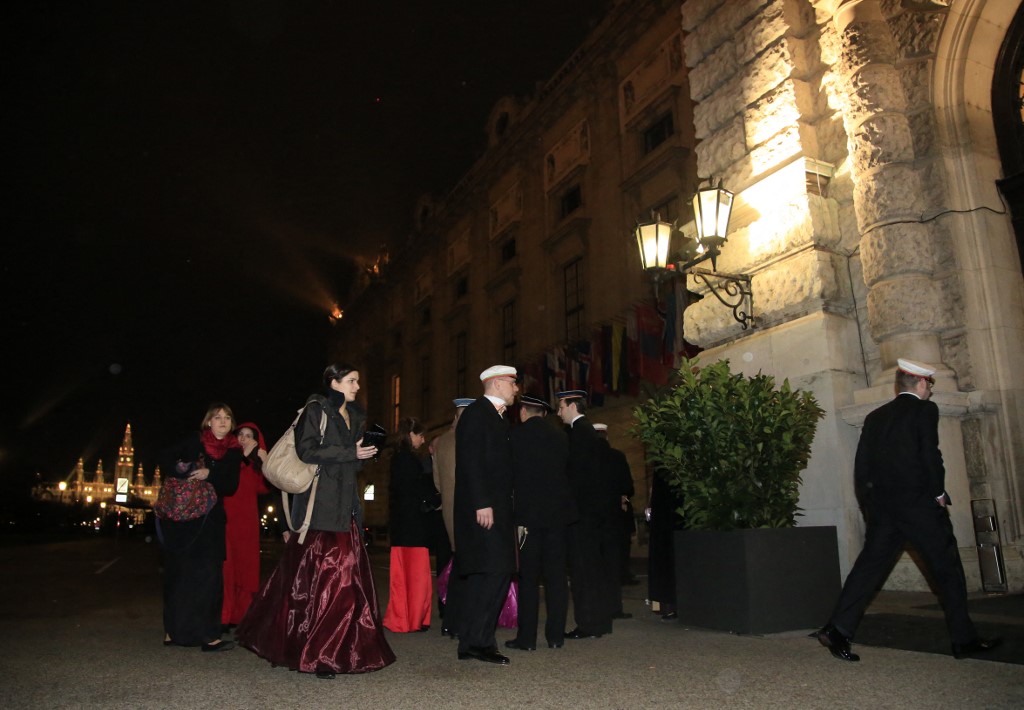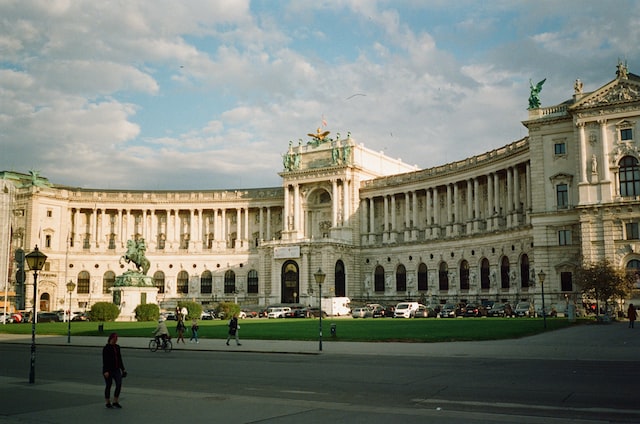Akademikerball: What's the story behind Vienna's annual glitzy ball for the far right?

A yearly ball organised by Austria's far-right takes place in Vienna - the next one will happen tonight. What exactly is it and why does it draw so much attention?
What's happening?
The Akademikerball is a glitzy yearly event involving people from Austria's far-right scene gathering at the grand Hofburg Palace in central Vienna. It has been hosted by the the far-right Freedom Party of Austria (FPÖ) since 2013, but has a history dating back decades.
It is one of Austria's most controversial events, drawing thousands of protesters. Critics describe the event as "an international networking meeting of right-wing extremists", broadcaster ORF reported.
Organisers describe it as a "classic Viennese nobel ball".
Why does it take place - and why is it controversial?
The ball has repeatedly been accompanied by protests that sometimes turn violent due to its reputation as a social gathering for far-right politicians and supporters. Many of the guests come from mostly male student fraternities, known as Burschenschaften in German, that are linked to German nationalism ideology.
The event had been organised since 1952 until 2012 by the controversial Wiener Korporationsring (WKR).
After differences with the Vienna Hofburg, the FPÖ Vienna took over the organisation, and it was renamed the Akademikerball or Academics' Ball.
In 2014 protests against the event resulted in severe damage to property and a considerable number of injured demonstrators and police officers. In the years that followed, however, the situation has calmed down somewhat.

Guests arrive to attend the Wiener Akademikerball, a ball organised by the far-right Austrian Freedom Party, at the Hofburg Palace in Vienna on February, 1 2013. (Photo by ALEXANDER KLEIN / AFP)
At the event in 2020, guests included Martin Sellner, head of the Identitarian Movement, which is is classified as right-wing extremist by the Office for the Protection of the Constitution. In 2012, the participation of the French far-right populist Marine Le Pen also caused a stir.
The FPÖ will be strongly represented at the event, although party leader Herbert Kickl will not be attending, according to Austrian press, it is claimed that Kickl is "generally not a big ball-goer".
The legitimacy of the ball has been debated fiercely in Austria. Some are convinced that the far-right scene should not be allowed to meet in such a historically significant place. Others - mainly FPÖ members and sympathisers - argue that a democracy should allow it and that it is their right as a party to organise a ball.
READ ALSO: Is Austria’s Freedom Party a ‘far-right’ party?

The Hofburg in Vienna. Photo by Jörg Bauer on Unsplash
How does it impact Vienna?
The next Akademikerball takes place on February 16th. Expect a heavy police presence in the centre of Vienna. As has been the case in previous years, rallies will also take place, including from the Offensive gegen Rechts (Offensive against the Right) and other organisations.
At past events, demonstrators have held signs protesting against Nazism and racism.
Due to the demos and road closures, there will be traffic disruption in and around the city centre, according to police.
Comments
See Also
What's happening?
The Akademikerball is a glitzy yearly event involving people from Austria's far-right scene gathering at the grand Hofburg Palace in central Vienna. It has been hosted by the the far-right Freedom Party of Austria (FPÖ) since 2013, but has a history dating back decades.
It is one of Austria's most controversial events, drawing thousands of protesters. Critics describe the event as "an international networking meeting of right-wing extremists", broadcaster ORF reported.
Organisers describe it as a "classic Viennese nobel ball".
Why does it take place - and why is it controversial?
The ball has repeatedly been accompanied by protests that sometimes turn violent due to its reputation as a social gathering for far-right politicians and supporters. Many of the guests come from mostly male student fraternities, known as Burschenschaften in German, that are linked to German nationalism ideology.
The event had been organised since 1952 until 2012 by the controversial Wiener Korporationsring (WKR).
After differences with the Vienna Hofburg, the FPÖ Vienna took over the organisation, and it was renamed the Akademikerball or Academics' Ball.
In 2014 protests against the event resulted in severe damage to property and a considerable number of injured demonstrators and police officers. In the years that followed, however, the situation has calmed down somewhat.

At the event in 2020, guests included Martin Sellner, head of the Identitarian Movement, which is is classified as right-wing extremist by the Office for the Protection of the Constitution. In 2012, the participation of the French far-right populist Marine Le Pen also caused a stir.
The FPÖ will be strongly represented at the event, although party leader Herbert Kickl will not be attending, according to Austrian press, it is claimed that Kickl is "generally not a big ball-goer".
The legitimacy of the ball has been debated fiercely in Austria. Some are convinced that the far-right scene should not be allowed to meet in such a historically significant place. Others - mainly FPÖ members and sympathisers - argue that a democracy should allow it and that it is their right as a party to organise a ball.
READ ALSO: Is Austria’s Freedom Party a ‘far-right’ party?

How does it impact Vienna?
The next Akademikerball takes place on February 16th. Expect a heavy police presence in the centre of Vienna. As has been the case in previous years, rallies will also take place, including from the Offensive gegen Rechts (Offensive against the Right) and other organisations.
At past events, demonstrators have held signs protesting against Nazism and racism.
Due to the demos and road closures, there will be traffic disruption in and around the city centre, according to police.
Join the conversation in our comments section below. Share your own views and experience and if you have a question or suggestion for our journalists then email us at [email protected].
Please keep comments civil, constructive and on topic – and make sure to read our terms of use before getting involved.
Please log in here to leave a comment.